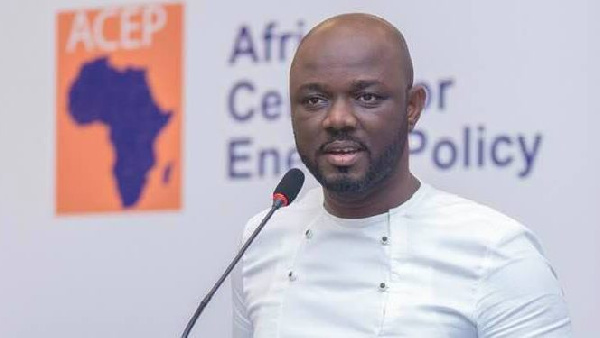- as it calls for reforms
Growing concerns over sustainability of the country’s power sector are the result of lacking transparency and negligence on the part of some key stakeholders, the Africa Centre for Energy Policy (ACEP) has noted.
In recent times, the sector has come under severe scrutiny due to a ballooning energy sector-related debt, which the Minister of Energy, Matthew Opoku Prempeh, said in February could increase fourfold to US$12.5billion by 2023 if nothing is done.
For instance, government still owes Independent Power Producers (IPPs) over US$750million after paying half of the US$1.5billion owed them last December. While this debt continues to accumulate every month due to electricity distributors’ – Electricity Company of Ghana (ECG) and Northern Electricity Distribution Company (NEDCo) – inability to effectively collect revenues from consumers to pay for power bought, government also pays around US$500million every year for excess power capacity contracted on pay-or-take basis.
Aside from this, an estimated US$700million of taxpayers’ money goes into paying for excess gas – or gas that the state does not use but is obliged to pay for.
However, ACEP holds the view that most of these challenges are self-inflicted and highly avoidable; and as such largely result from lack of transparency and negligence.
Kodzo Yaotse, Policy Lead-Petroleum and Conventional Energy at ACEP, believes that to return the sector to a sustainable path, government must be more open about information on excess power capacity based on the declared availability for each of the plants for which excess capacity charge is paid; and that government should take effective steps to safeguard taxpayers.
Among other things, he said government should prioritise the conversion of single cycle plants – particularly the KTPP and AMERI plants which are still in the early stage of their life-cycle – to combined cycle plants to improve the production and cost-efficiency of the plants to reduce consumer tariffs, if it is to resolve some of the bottlenecks in the power sub-sector.
“Government should be transparent about the never-ending negotiations of Power Purchase Agreements (PPAs) and ensure that they are meticulous to avoid judgement debt for energy that is never consumed by the taxpayer,” Mr. Yaotse noted when presenting a paper on power sector priorities for government’s action in Accra.
Although government has consistently indicated that it is negotiating with PPAs to relieve the country of excess capacity charges, he said there is no transparency around the negotiations of these PPAs.
“The recent US$134million judgement debt against government over termination of the Emergency Power Agreement with Ghana Power Generation Company (GPGC) Limited is only an indication of the poor judgement that has characterised such negotiations, the result of opacity that paid limited attention to the contract terms,” Mr. Yaotse added.
Meanwhile, reacting to President Nana Akufo-Addo’s 2021 State of the Nation Address to Parliament, ACEP expressed surprise that the president reiterated this same renegotiation of PPAs in his address without reference to the significant waste that the negotiations and terminations have begun generating, as in the case of GPGC.
In the area of fuel supply for power generation, it wants the state to among other things prioritise the optimisation of its domestic gas and the suspension of LNG importation plans.
This, it explains, will reduce the take-or-pay commitments, reduce pressure on the budget and provide incentives for investments in domestic gas resources. “If by 2022 Ghana is unable to consume the Offshore Cape Three Points (OCTP) makeup gas, some people should be held criminally liable for deliberately causing financial loss to the state,” Mr. Yaotse advocated.
Another area the think-tank is advocating reforms in is the transmission sector, where it is calling for portions of the proceeds from the Energy Sector Levies Act (ESLA) to be made available for investment in critical equipment of the transmission system.
“The sustainability of GRIDCo depends on a reformed power sector that pays for investments in the transmissions of the power sector. The fiscal position of government makes it difficult for the budget to continue ing investments in the transmission system. In the short-term, some parts of the ESLA proceeds should be made available for investment in critical equipment of the transmission system.
“Ongoing upgrade-work should be expedited to relieve power consumers of the frequent outages and low voltage currently being experienced,” ACEP further noted.










